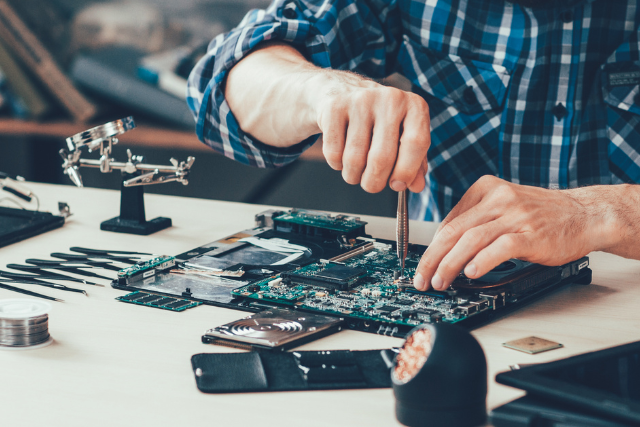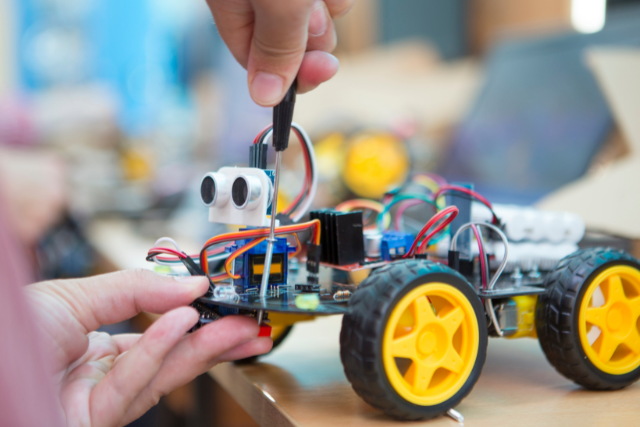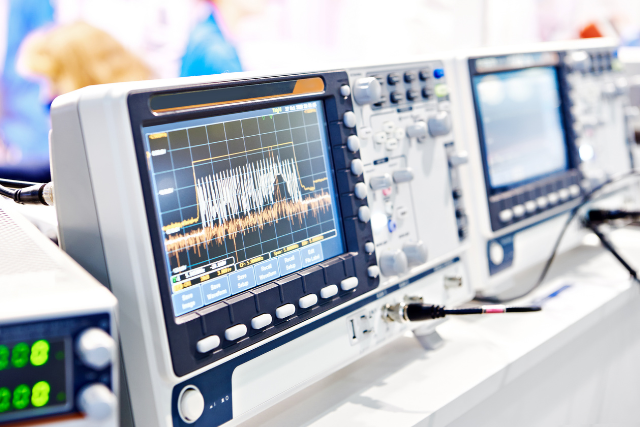Electronics engineering is a field that has been around for decades, and it has played a crucial role in the development of modern technology.
With the rise of artificial intelligence (AI), electronics engineering is poised to play an even more significant role in shaping the future of technology.
You can shape the future of innovation. Embrace the challenges and stay ahead of the game as you explore the exciting trends and innovations that lie ahead.
The scope of electronics engineering in the AI future is vast, and it’s time for you to seize it.
Table of Contents
The Role of Electronics Engineering in AI Development
Your role as an electronics engineer in AI development is crucial for advancing the field and shaping the future of artificial intelligence.
As an electronics engineer, you possess the expertise to design and develop the hardware components required for AI systems. From creating high-performance processors to designing efficient circuitry, your work directly impacts the functioning and performance of AI technologies.
Your knowledge of electronics enables you to optimize power consumption, enhance computational capabilities, and improve overall system reliability.
You play a vital role in integrating various electronic components with software algorithms, ensuring seamless communication and efficient processing.

Opportunities for Electronics Engineers in AI Industries
What opportunities do electronics engineers have in the AI industry?
As an electronics engineer, you have a wide range of opportunities in the field of AI. With the increasing integration of AI technology in various industries, there’s a growing demand for professionals who can design, develop, and maintain AI systems.
You can work on projects involving machine learning algorithms, neural networks, and deep learning models. Additionally, you can contribute to developing AI hardware, such as processors and sensors, that are essential for AI systems to function effectively.
Electronics engineers can also work on improving the efficiency and performance of AI applications by optimizing power consumption and signal processing techniques.
With your expertise in electronics engineering, you can play a crucial role in shaping the future of AI industries.
Here are some of the key areas where electronics engineering is likely to play a significant role in the AI future:
Hardware Development
One of the most critical areas where electronics engineering is likely to play a significant role in the AI future is hardware development. AI requires powerful computing systems to process data in real-time.
Electronics engineers will be responsible for designing and developing the hardware systems that power AI applications, including processors, memory systems, and storage devices.
Sensor Technology
Another area where electronics engineering is likely to play a significant role in the AI future is sensor technology development. Sensors are critical components of AI systems, providing AI algorithms’ data to make decisions.
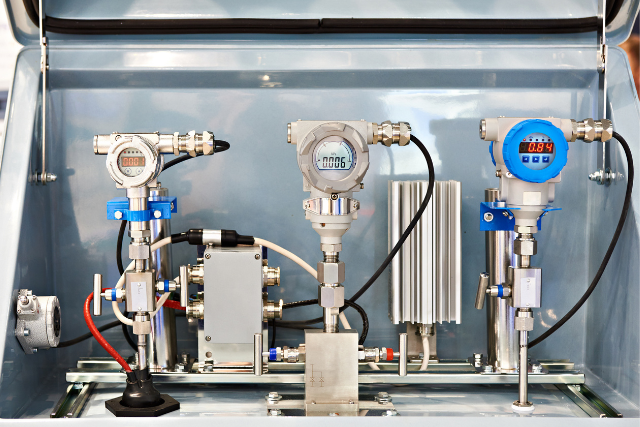
Electronics engineers will be responsible for designing and developing sensors that capture data accurately and reliably, including cameras, microphones, and other sensors.
Robotics
Robotics is another area where electronics engineering is likely to play a significant role in the AI future. Robotics involves designing and developing machines that can perform tasks autonomously, and AI is a critical component of this field.
Electronics engineers will be responsible for designing and developing the electronic systems that power robots, including sensors, actuators, and control systems.

Autonomous Vehicles
Autonomous vehicles are another area where electronics engineering is likely to play a significant role in the AI future.
Autonomous vehicles require sophisticated electronic systems that can process vast amounts of real-time data, including sensors, cameras, and other sources.

Electronics engineers will be responsible for designing and developing the electronic systems that power autonomous vehicles, including processors, memory systems, and storage devices.
Medical Devices
Medical devices are another area where electronics engineering is likely to play a significant role in the AI future. AI is already used in medical devices to improve patient outcomes and reduce healthcare costs. Electronics engineers will be responsible for designing and developing the electronic systems that power medical devices, including sensors, processors, and memory systems.
Skills and Knowledge Required for Electronics Engineers in the AI Field
As an electronics engineer in the AI field, you’ll need a strong electronics and computer science foundation.
This means thoroughly understanding electrical circuits, digital systems, signal processing, and programming languages like Python, C++, and Java.
Familiarity with machine learning algorithms and data analysis techniques is also crucial. Additionally, you should be well-versed in hardware design and integration, as AI applications often require developing specialized hardware systems.
Keeping up with the latest advancements in AI technologies and staying updated on industry trends is essential to excel in this field. Effective problem-solving skills, attention to detail, and the ability to work collaboratively are also important traits for an electronics engineer in AI.
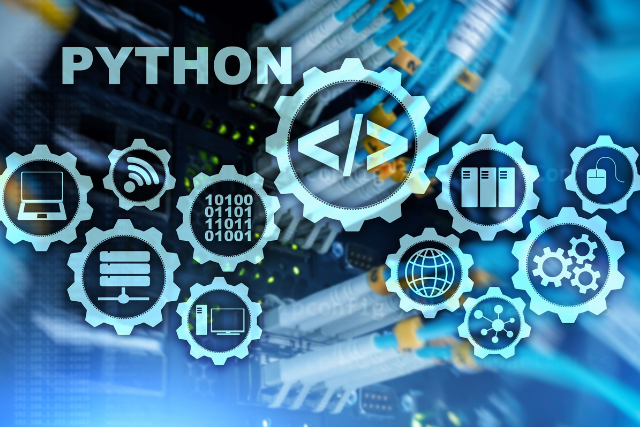
Challenges for Electronics Engineers in the AI-driven World
One of the challenges electronics engineers face in the AI-driven world is ensuring the seamless integration of hardware and software components.
With the rapid advancements in artificial intelligence, electronics engineers must design and develop systems that can efficiently handle the complex algorithms and computations required for AI applications. They must ensure that the hardware components, such as processors and memory, can support the software algorithms and models.
They need to optimize the integration and communication between the hardware and software to minimize latency and maximize performance.
Another challenge is the constant need for updating and upgrading the hardware and software to keep up with the evolving AI technology. Electronics engineers must stay updated with the latest advancements and trends in AI to address these challenges effectively.
Future Trends and Innovations in Electronics Engineering for AI
To succeed in the AI-driven future, you must anticipate and adapt to the emerging trends and innovations in electronics engineering.
The field of electronics engineering is constantly evolving to keep up with the demands of AI technology. One of the key trends is the development of more advanced and efficient hardware, such as specialized processors and neural network accelerators, which can handle the complex computations required by AI algorithms.
There’s a growing emphasis on integrating AI and electronics in various industries, including healthcare, automotive, and manufacturing. This integration allows for smarter and more autonomous systems, improving efficiency and productivity.
Another important trend is the focus on energy efficiency, as AI systems consume significant power. As a result, electronics engineers are developing low-power and energy-efficient solutions to optimize the performance of AI systems.

Frequently Asked Questions
What Is the History of Electronics Engineering and Its Relation to AI Development?
The history of electronics engineering and its relation to AI development is fascinating. It has paved the way for AI technology advancements and greatly contributed to its growth and success.
How Does Electronics Engineering Contribute to the Ethical Considerations and Responsible Use of AI?
In electronics engineering, you contribute to the ethical considerations and responsible use of AI. This is done by designing systems prioritising privacy, security, and fairness. Your role is to ensure that AI is developed and deployed in a responsible manner.
Are there Any Specific Industries or Sectors Where Electronics Engineers Are in High Demand for AI-related roles?
Electronics engineers are sought after in high-demand industries or sectors for AI-related roles. They possess the skills to develop and optimize electronic systems that power AI applications, making them valuable assets in artificial intelligence.
Their expertise in designing and implementing hardware components, such as sensors, microprocessors, and memory devices, allows them to create efficient and reliable AI systems. They can also integrate software algorithms and machine learning models into these systems, enabling them to process and analyze large amounts of data.
Additionally, electronics engineers are knowledgeable in signal processing and digital communication, essential for AI systems that rely on real-time data input and output. Their understanding of circuit design and power management enables them to build energy-efficient AI devices.
With their ability to bridge the gap between hardware and software, electronics engineers play a crucial role in advancing AI technology. Their expertise in both fields allows them to optimize the performance and functionality of AI systems, leading to innovative solutions in various industries.
What Are the Key Differences Between the Skills and Knowledge Required for Electronics Engineers in Traditional Fields Versus Those in the AI Field?
Electronics engineers need to understand machine learning algorithms, data analysis, and programming languages like Python.
These skills differ from traditional fields focusing more on hardware and circuit design.
Can You Provide Examples of Real-World Challenges Electronics Engineers Face When Working on AI-driven projects?
When working on AI-driven projects, you may face challenges like integrating AI algorithms into hardware, optimizing power consumption, and ensuring real-time processing.
These difficulties require expertise in electronics engineering to overcome.
Conclusion
In conclusion, the scope of electronics engineering in the future of AI is vast and promising. Electronics engineers play a crucial role in the development of AI technologies.
With the increasing demand for AI in various industries, electronics engineers have numerous opportunities to contribute and excel. However, they must continuously update their skills and knowledge to keep up with the rapidly evolving AI field.
Despite the challenges, the future holds exciting trends and innovations in electronics engineering for AI.

